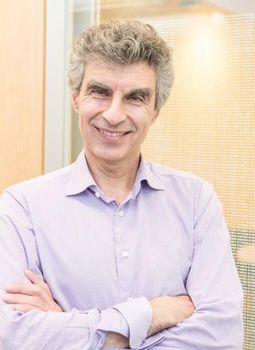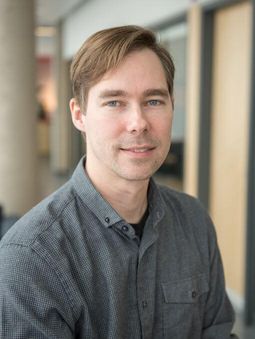Artificial intelligence is driving research at the IRIC
- UdeMNouvelles
04/29/2021
- Martin LaSalle
At the second edition of the IRIC's Rendez-vous Audace conference, Yoshua Bengio and Sébastien Lemieux explain how artificial intelligence is being used to advance cancer research.
New technologies have generated enormous amounts of data in recent years. That's why Université de Montréal's Institute for Research in Immunology and Cancer (IRIC) has been actively developing specialized expertise in bioinformatics and biomedical data, in partnership with Montreal's artificial intelligence (AI) ecosystem.
How is AI being used to advance cancer research? How do the diverse experts in this specialized field find ways to understand each other? And how might AI accelerate new discoveries to benefit patients?
These were the topics covered by Sébastien Lemieux, scientific director of the IRIC's Bioinformatics Unit, and Yoshua Bengio, scientific director of Mila, Québec's research institute in artificial intelligence, at the second edition of the Rendez-vous Audace conference, which was held virtually on April 20.
AI as a tool for cancer research
AI allows us to process all kinds of data, including data on cellular DNA. "Artificial intelligence can help us find a needle in a haystack by uncovering what may be causing cancer, as well as what might work to cure it," said Bengio. "Deep learning is an abstract science and the things we're working on can be used in a number of areas. Because the algorithms are so versatile, they have many different applications."
In fact, deep-learning algorithms are already being used to perform billions of tests on chemical molecules, which the computer compares against other data.
"Artificial intelligence is like a probe that allows us to make predictions, such as whether there is a relationship between the big data on active genes and a specific behaviour," said Lemieux.
The goal is to eventually be able to create personalized treatments for each type of cancer. To do so, "we first need to identify the various cancer subtypes that we're dealing with so that the algorithms can sift through available therapies or drug combinations to determine which are most likely to be effective," explained Lemieux.
Access to data: a major obstacle to the advancement of knowledge
To make personalized treatments possible, we need to tap into the full potential of AI and big-data processing.
"One of the biggest issues for us is determining how to access the data generated by the healthcare system and related industries — including the pharmaceutical sector — so that we can gain insights from it while also protecting patient privacy," said Bengio. "That's something we're actively trying to figure out."
Lemieux is frustrated by the fact that "our goal is to advance knowledge, but for the time being we're only able to use a tiny fraction of the data. The public healthcare system and private companies are wary of sharing their data because of concerns over trade secrets and competitiveness. These barriers even persist in academia."
Both eminent researchers believe that improving access to data would accelerate cancer research and ultimately lead to better treatments for patients.
The importance of long-term funding
Long-term funding for multidisciplinary research projects is fundamental if we want to develop new knowledge and effective solutions.
"For quite some time now, the various levels of government in Canada have chosen to invest in basic research, which is essentially driven by curiosity," said Bengio. "This allows us to pursue deeper understanding even though there's no guarantee we'll find solutions. Basic research is what leads to major advances, as we saw with my research group, which secured long-term funding with no strings attached in the early 2000s."
Sébastien Lemieux believes that since basic research projects typically involve several disciplines, participating researchers need more time to pool their resources and knowledge before they can forge ahead and explore seemingly unlikely possibilities.
View the conference playback
Did you miss the conference? You can watch the whole presentation by clicking this link and filling out the required fields.















